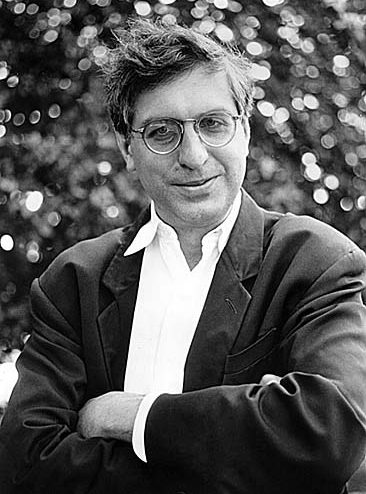
Documentary | Interviews | Television
An Hour with Errol
Written by Dave Avdoian | Posted by: Anonymous
Cambridge filmmaker Errol Morris sits down in his office and opens a can of Coke. To his right, propped up on a stool, is a tape recorder. With such masterpieces as "Gates of Heaven," "The Thin Blue Line," and "Fast, Cheap, and Out of Control," Morris has established himself as the most exciting and innovative documentarian in America. Recently, he has turned his attention to the small screen with his television series "First Person." He speaks slowly and deliberately, his voice occasionally drowned out by the sound of passing traffic…
Hello, I’m Errol
"I’m among other things obsessed with the nature of interviews and the forms of the interview and what they mean and how they’re shot, how they’re conceived. As much as I’ve ever been."
"First Person"
"The great fear is somehow, for me, that it’s seen as just another interview show, another biography show, that it really is not so different in kind from what you would see on network television.
But they are different. The idea of creating these little short stories or moral fables with one person, [is] not about balance, about fairness, about providing some comprehensive coverage of the story. It’s almost the exact opposite.
It’s about lack of balance, subjectivity, finding one aspect of the story that relates to one person and exploring it.
The first of them in fact, we’re going to be finishing very shortly which is on Josh Harris who was an internet entrepreneur who made a lot of money, lost a lot of money, ended up living in public, creating this very odd website www.weliveinpublic.com.
(Phone rings)
There was an article that appeared in Vanity Fair on him and his girlfriend. And then his girlfriend, Tanya Corrin, independently published her own article in The New York Observer.
(Phone Rings)
Let me see what this is.
(Goes to pick up phone, which stops ringing)
So we’re doing a show on Josh Harris and Tanya Corrin."
Recycling
"[Using footage from other films] has a whole other relevance. It has that reflexive element: a film commenting on film, a film being expropriated and used in some completely different context than which it was intended.
There’s something perverse and interesting about doing that.
Sometimes old footage is extraordinarily beautiful and interesting, just by virtue of the fact that it is old, it’s degraded, it’s imperfect, it’s damaged.
The Josh Harris story is about a guy who is suffering from some kind of TV addiction, TV compulsion, TV mania. And so the use of all kinds of footage actually is part of the story itself. It reflects the story."
The Process
"I don’t know ahead of time what I’m going to hear in an interview so it’s guesswork. You’re hoping that you’re going to hear really, really interesting material and not knowing exactly what the interesting material is going to be.
I mean there’s all this stuff you wished you’d asked. Stuff where I wish I had been more alert, smarter, faster at understanding the underlying story of the material.
All of the above. It’s inevitable.
And part of it is in the interview itself, thinking fast on my feet, thinking that there’s a way of bringing this material together, finding some underlying theme or organizing principle, and then tailoring the questions so that I get material I need in order to tell the story.
I always try to remember it’s important not to become too attached to one way of telling a story because in fact, the story may be completely different from what you imagined going into it. And it’s important to be flexible enough to see that it’s taking a turn for the unexpected and to go with it.
The Josh Harris show is a perfect example of that because the story is much, much crazier than I could ever have imagined. It’s really more interesting…and there are all kinds of really fascinating issues that run through the material. It seems deep and interesting, absurd, funny, sick, sad."
Labels
"I don’t have any qualms with calling these documentaries or being described as a documentarian except, there’s this understanding, this doesn’t really work like ordinary documentaries or have the same idea behind it.
I think that there’s something odd going on in this stuff that doesn’t really — it doesn’t really equate with a lot of the other stuff going on. It’s not vérité, it’s not — I mean there are so many different styles of documentary filmmaking. It is this heterogeneous category to begin with.
Everything is neatly lumped together in a way that makes people forget that it’s widely diverse, from diary films to narrated, you know, Ken Burns type slide shows with interviews, to straight vérité. I mean there’s stuff that’s done in all of those genres that I really admire. I do. Just plain and simple.
One thing that bothers me a little bit because I’ve heard this from a number of different people, the idea that somehow ["First Person" is] simply stories that are odd, peculiar, perverse, dark, disturbing, whatever. Which are the only stories that I could possibly find interesting. Strictly speaking I don’t think that’s true.
I like there to be some subtext. I like there to be a set of ideas standing behind the story.
It’s not perversity for its own sake, strangeness for its own sake.
I mean, I guess this is my conceit: that I created a style of filmmaking that is different. And yes, it is documentary. There are real people in it. There are interviews. The interviews are the documentary element. But the way the material is organized and how it’s put together is very, very different. [That’s] probably part of the reason why a lot of the straighter documentary filmmakers just don’t like what I do, if that’s the case.
It’s certainly the case with the Academy."
The Plug
"There’s nothing at all like it on television. I think it’s really interesting television. I think it’s compelling. I think that each of the stories gives you something to think about. I think they’re really rich and cinematic in many ways. And, I mean, it’s hardly an argument to other people, but I like them a lot."
Look for part 2 of this interview in the next issue of NewEnglandFilm.com. 'First Person' can be seen on the Independent Film Channel in the fall. Visit http://www.errolmorris.com for more information.









